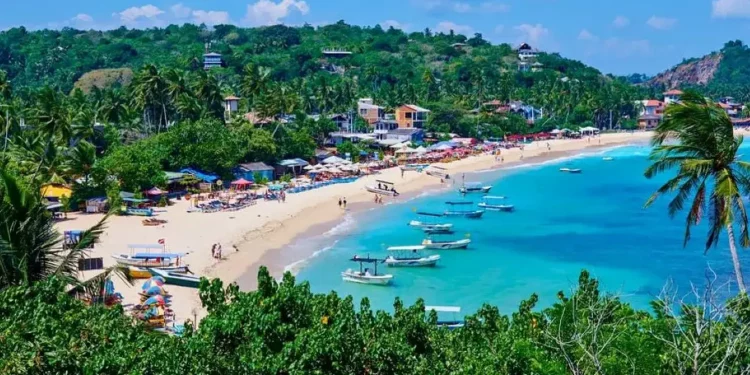Sri Lanka announced on Sunday a significant policy change affecting thousands of Russian and Ukrainian nationals who have sought refuge on the island nation. The move to discontinue long-term tourist visa extensions comes in the wake of Moscow’s invasion of Ukraine, marking a shift in the country’s previously welcoming stance towards visitors from these nations.
According to Harsha Ilukpitiya, the Commissioner-General of Immigration, the Sri Lankan government will cease to grant further visa extensions, setting a deadline of March 7 for those affected to leave the country. Ilukpitiya emphasized that the decision was facilitated by the normalization of flight operations, allowing for the uncomplicated return of these individuals to their home countries.
The past two years have seen a significant influx of tourists from Russia and Ukraine, with official figures citing over 288,000 Russian and nearly 20,000 Ukrainian visitors. While the exact number of those extending their stay beyond the standard 30-day tourist visa remains unclear, it is believed that thousands, particularly from Russia, have chosen to make Sri Lanka their temporary home. Among these, some have sought to escape potential military conscription, with others going as far as starting businesses, including restaurants and nightclubs.
This policy change coincides with a wave of social media outrage directed at a Russian-operated nightclub in Unawatuna, a southern coastal resort town known for its picturesque beaches. The establishment came under fire for organizing an event marketed as a “whites-only” party, sparking widespread condemnation and highlighting the social tensions brought about by the expatriate community.
Sri Lanka’s decision to end visa extensions is seen against the backdrop of efforts to rejuvenate its tourism sector, a critical source of foreign exchange, especially as the country emerges from its most severe economic crisis in decades. Since mid-2022, the nation has grappled with the repercussions of defaulting on its $46 billion foreign debt, leading to unprecedented street protests and the eventual resignation of President Gotabaya Rajapaksa.
The introduction of on-arrival 30-day visas was part of a broader strategy to attract international visitors and alleviate financial strain. However, the economic landscape has seen gradual improvements, thanks in part to a $2.9 billion bailout from the International Monetary Fund (IMF), which has helped stabilize the economy and alleviate shortages of essential goods including food, fuel, and medicines.
As Sri Lanka navigates its path to recovery, the termination of long-term visa extensions for Russians and Ukrainians marks a new chapter in its approach to international relations and immigration policy, reflecting the complex interplay of economic recovery, social cohesion, and geopolitical considerations.



























